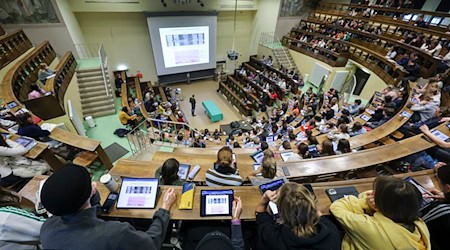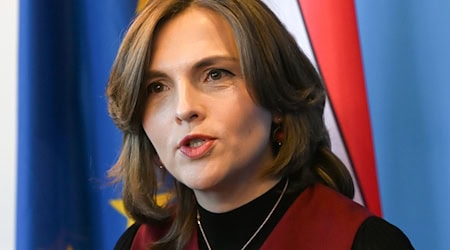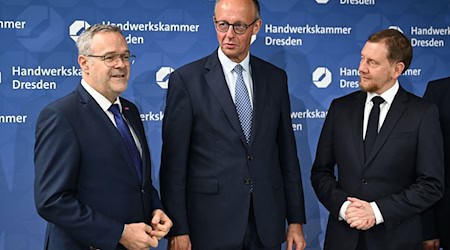The mayors of eastern German cities see the Germany ticket from 2024 before the end. The reason is enormous additional costs for public transport in the coming years, for which the federal government has so far refused to provide financial compensation, Leipzig's mayor Burkhard Jung (SPD) said on Tuesday. In his city alone, the subsidy requirement for wages, vehicles and infrastructure, for example, will double from about 100 million euros now to 2030. The cities are also pressing for financial changes in the accommodation and care of refugees. Jung: "We finally need a permanent system of financing that dynamically adapts to the refugee numbers and gives us planning security."
In view of the current financial situation and ever new tasks, the mayors see their cities falling further and further behind in terms of investment. They pointed to studies that put this backlog, as well as the need for investment in the maintenance and expansion of railways and roads, for example, at several hundred billion euros over the next few years.
The share of investments in the overall municipal budget has long been barely more than 10 percent, Jung explained after the meeting with his eastern German counterparts in Gera. In addition, he said, there are new tasks for the future, such as the change in heating and transportation, digitization and the transition to climate neutrality. The tasks are growing, so additional money is needed, he said. "For this, we need more support from the federal government," warned the vice president of the German Association of Cities.
The mayors called for an "update" of the financial distribution between the federal government, the states and the municipalities. The simplest way would be to increase the cities' share of community taxes such as sales tax, Jung suggested. According to the Federal Ministry of Finance, this amounts to 2.2 percent and last year contributed 8.1 billion euros to the coffers of the municipalities. After trade tax, the municipal share of income tax and property taxes, this revenue from sales tax with a share of about 6.1 percent is the fourth important pillar of municipal tax revenue, the ministry said.
According to the idea of the cities, their share of sales tax should be increased to up to 5 percent. Also a special fund, from which costs for climate adaptations are financed in the long term, they brought into the discussion. The federal and state governments must finally recognize the additional financial needs of the cities, Jung warned. A change of direction is needed here. As a result of the Growth Opportunity Act to stimulate the economy alone, the municipalities would lose more than 7 billion euros in tax revenue next year. That would be "disastrous" given their high investment needs.
Copyright 2023, dpa (www.dpa.de). All rights reserved










